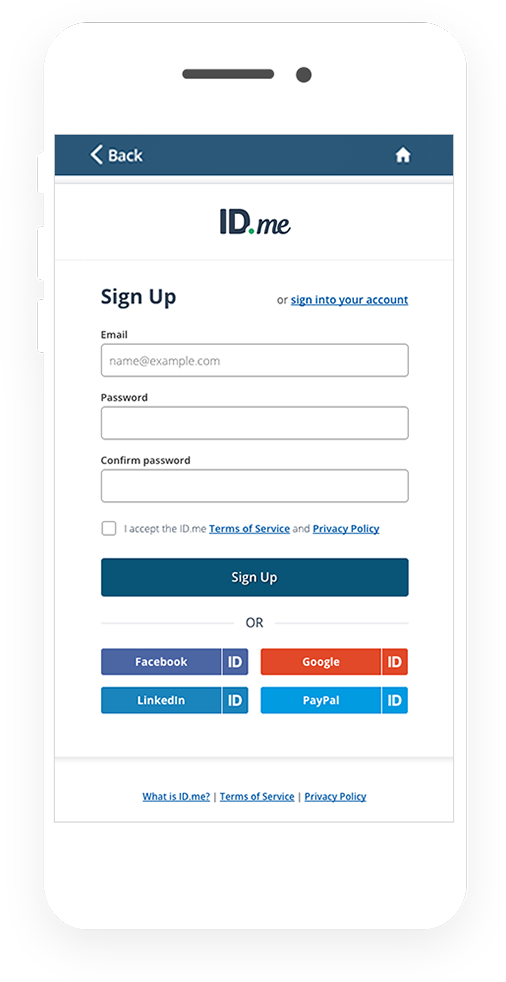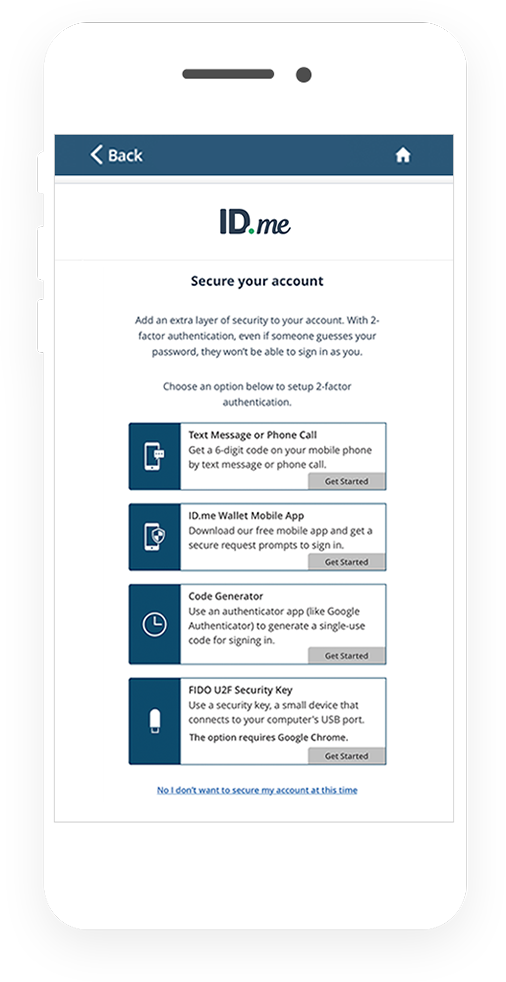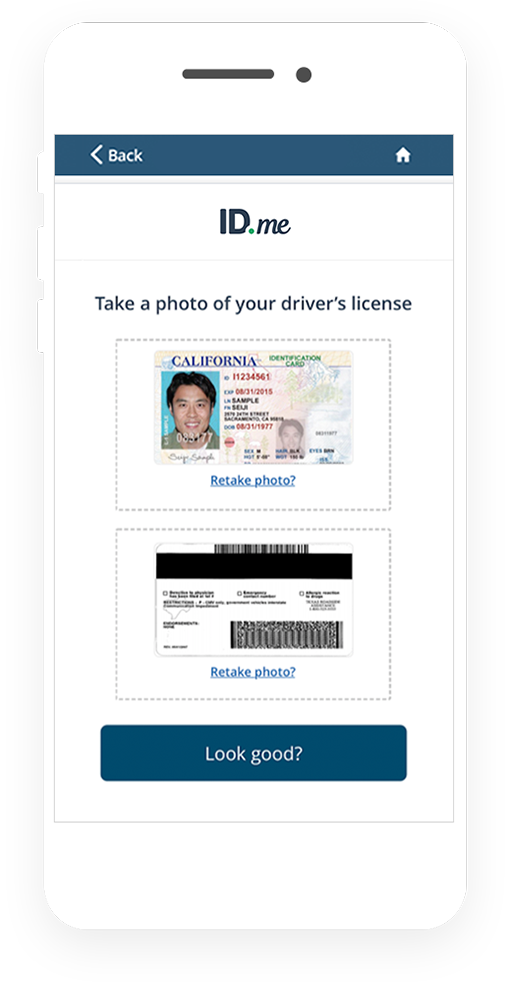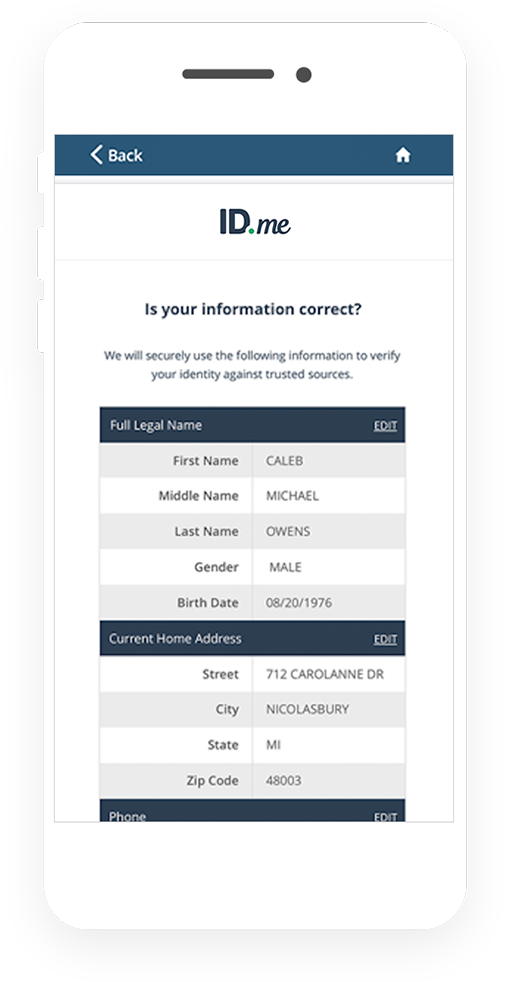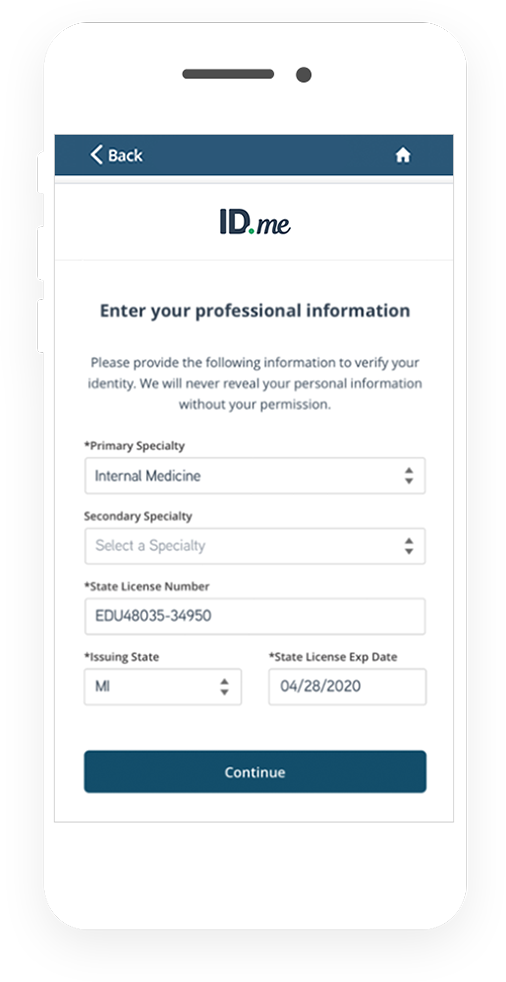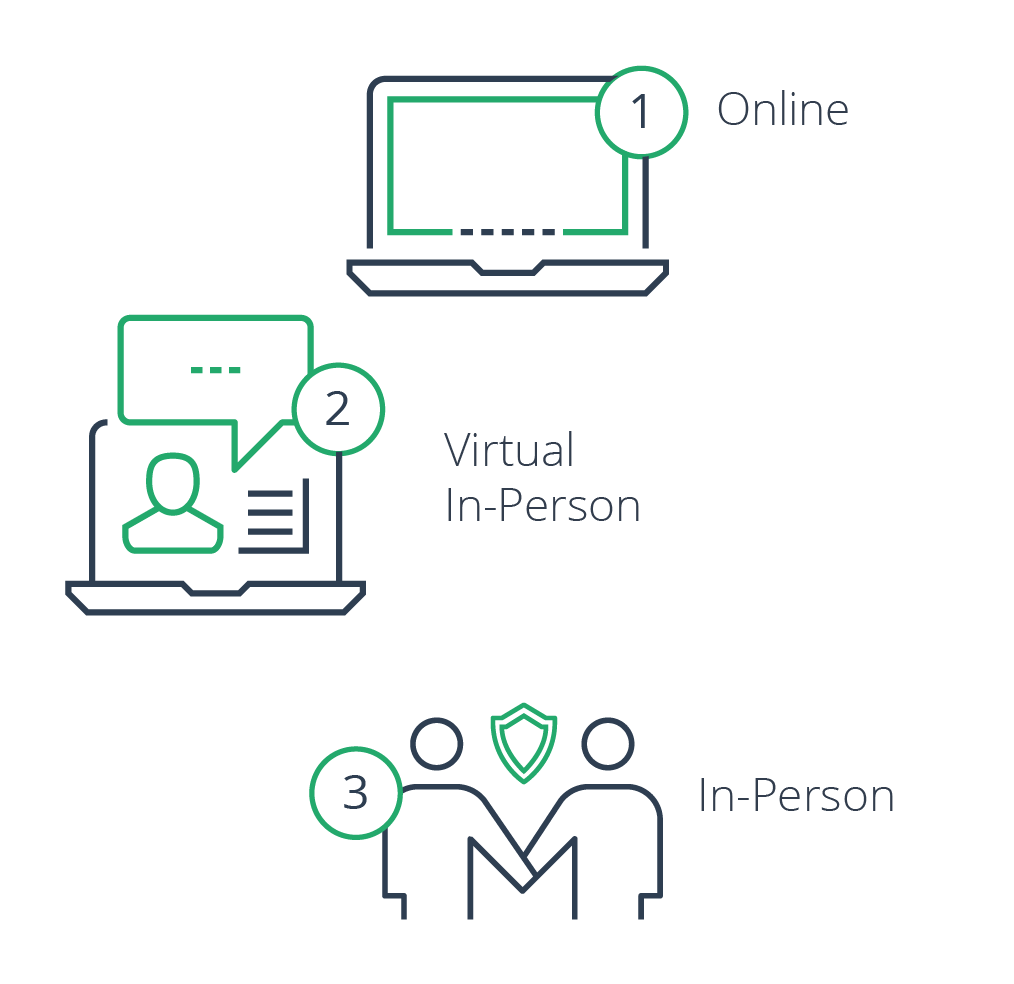The Importance of Identity Proofing in Healthcare
Modern healthcare relies on trusted digital identities more than ever—whether it is for a patient accessing protected health information (PHI) or a physician needing to prescribe a controlled substance.
Healthcare organizations use identity proofing to ensure patients and providers securely access healthcare data. It also protects patients and providers from medical identity theft and prescription fraud.
Identity Proofing for Providers
Meet Electronic Prescription of Controlled Substance (EPCS) compliance requirements for identity proofing physicians. ID.me’s EPCS identity proofing allows Health Care Providers to verify their identities one time and create Identity Assurance Level 2 (IAL2) credentials they can use to issue EPCS across multiple healthcare systems.
ID.me also validates healthcare provider credentials, including DEA and NPI identifiers and secures online accounts with two-factor authentication (2FA).
Identity Proofing for Patients
Enable online enrollment and identity verification to facilitate secure access to patient portals. ID.me’s patient identity proofing solution ensures the correct health records and insurance information are matched with the right patient. Patients who verify their identities with ID.me create IAL2 compliant credentials they can use to sign into patient portals across healthcare organizations.
How it works
Providers create an ID.me account, which they’ll use going forward to log in and prescribe EPCS.
Providers’ accounts are protected from takeover with two-factor authentication:
- Enhanced SMS
- Phone call to landline
- Biometrics via ID.me app
- Security key
- Code Generator
Providers verify identity by taking a photo of their identity documents.
Data extracted from the ID document pre-fills form. Providers confirm data and add SSN.
Providers input information such as DEA and NPI numbers to verify medical provider status.
